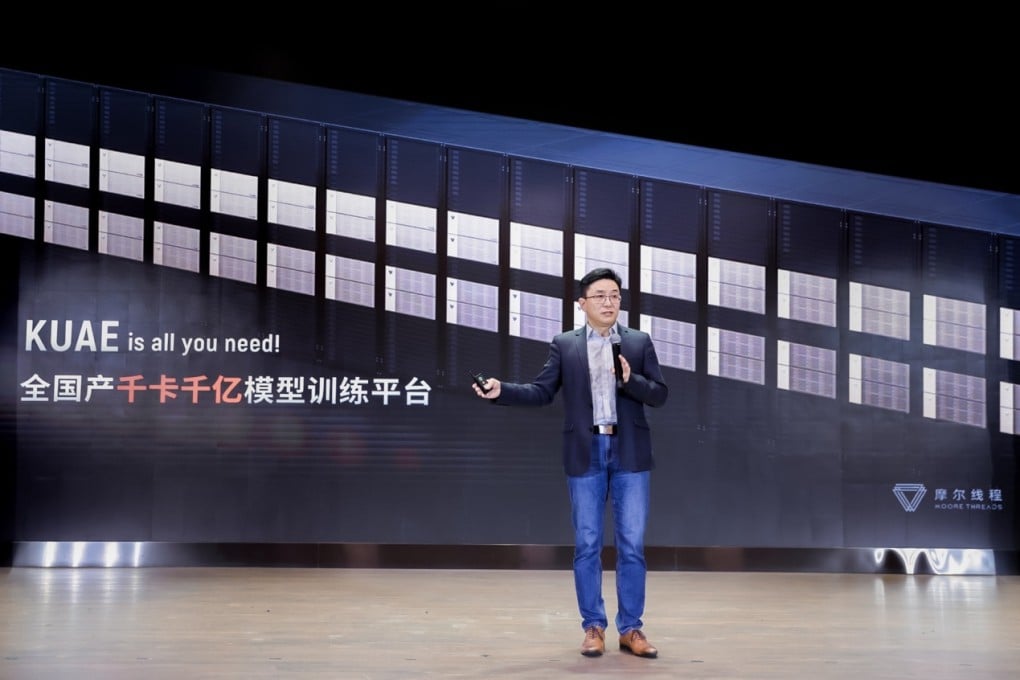Tech war: China’s chip firms embrace DeepSeek in AI self-sufficiency drive
From Moore Threads to Iluvatar Corex, China’s leading chip designers are rushing to adopt DeepSeek’s latest models

The chip firm said DeepSeek’s open-source V3 and R1 models had “greatly promoted” AI development and provided “inspiration” for developers.
“To push forward the development of the domestic AI ecosystem, Moore Threads will open its proprietary KUAE GPU intelligent computing cluster to fully support the distributed deployment of DeepSeek’s V3 and R1 models,” the company wrote, referring to its full-stack solution for AI data centres based on its own chips.

Huawei’s Ascend cloud service relied on its home-grown Ascend solution for compute resources, which could involve various types of hardware including the company’s self-developed server clusters, AI modules and accelerator cards, its website said.